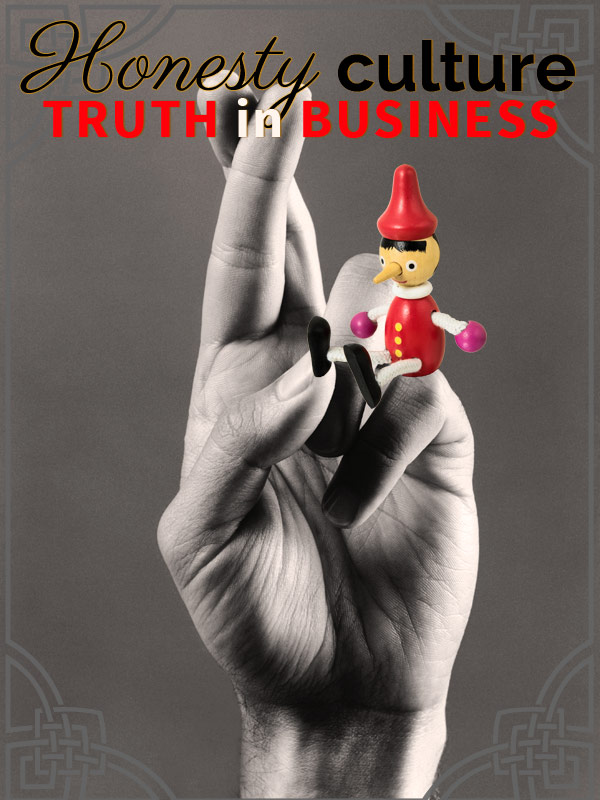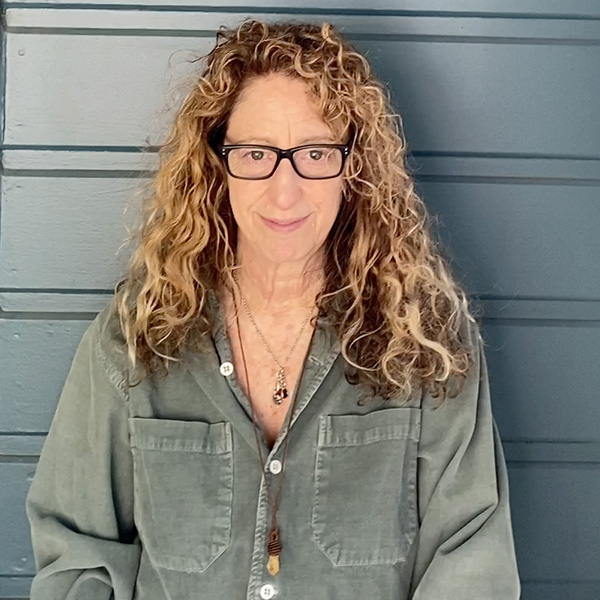Honesty Culture: Truth in Business
Who Are You? Who Do You Want To Be?
I’ve noticed that we take a lot for granted when we consider our views on core values, especially those we think of as wholesome. I suspect it’s because they appear, on the surface, to be so obvious, so honorable that to talk about them may seem a little dull and as a result, they become neglected and cheap. We make assumptions and the feelings in our gut don’t get quite the introspective attention they might deserve. So it’s not unusual for us to nod in approval and move on to other topics.
Yet when we get down to the nitty-gritty, the place where we’re revealing the details of our regard, we might discover that there are disagreements, conflicts of meaning and intention, misunderstandings. Nuances that steer us in opposing directions and into the territories of disappointments, disconnect and conflict.
[Tweet “How would you define the meaning and importance of honesty and integrity?”]
Imagining that I’m listening to our collective answers, from what I hear they seem to be pretty well aligned.
Take It A Step Further
How do you apply those values of honesty and integrity in conversations and your relationships, your actions and omissions – the things that become the compilation of the experiences you have in your business and that become your public image? The compilation that illustrates what working with you or your company feels like. What it’s like to buy from you. How your clients, customers, colleagues, co-workers, staff, see you and relate to you. If you aren’t creating a culture of trust based on your own trustworthy, honest, integrous behaviors why would anyone around you feel compelled to? In fact, the influence you have on your environment might just be the opposite of what you declare you want. And think that you are providing.
“When someone shows you who they are believe them; the first time.”
– Maya Angelou
Now Take It Deeper Still
How do you apply honesty and integrity to your internal environment, the conversation inside the privacy of your own mind and heart? In the place that no one ever need witness. Are you honest with yourself? You might be less so than you think. We keep our own secrets without even knowing it.
[Tweet “We’re so utterly faithful, that sometimes we don’t even realize we’re lying to ourselves.”]
We can be elaborate mistruth-tellers. And we can lie to ourselves about that.
James Altucher has this to say about being completely honest:
“Honesty is about the scars. It’s about the blemishes. But it’s more than just bragging about failure, which could be a form of ego. It’s about truly helping people.”
It takes a certain concerted, vigilant self-observation to lay in wait and catch the guilty-as-charged moments. It takes commitment. Beyond that, it takes effort to do it differently, to not let those small infractions go under our radar.
And to make complete honesty even more elusive or mercurial, our memories play tricks on us. Every experience we have can be interpreted and rewritten, remembered in countless ways and that can shape and re-shape our sense of honesty.
Multiply that by everyone you are in communication with and the opportunity for truths that have been ever so slightly skewed in apparent innocence or fabricated knowingly increases. Because each individual will naturally have their version of everything. You get my drift.
The Better News
Even with solid commitments to honesty on all sides, misunderstanding can occur. It’s important that we are paying attention, listening between the lines. That we have our empathy muscles stimulated and functioning, practice active listening, repeat-back to demonstrate that we’ve heard what was said for the benefit of clarification and from all that we make it possible to move forward in unison (even if there is disagreement within that unison).
Honesty refers to a facet of moral character and connotes positive and virtuous attributes such as integrity, truthfulness, and straightforwardness, including straightforwardness of conduct, along with the absence of lying, cheating, theft, etc. Furthermore, honesty means being trustworthy, loyal, fair, and sincere. [Wikipedia]
Integrity is the quality of being honest and having strong moral principles; moral uprightness. It is generally a personal choice to uphold oneself to consistently moral and ethical standards.
The word integrity evolved from the Latin adjective integer, meaning whole or complete. In this context, integrity is the inner sense of “wholeness” deriving from qualities such as honesty and consistency of character. As such, one may judge that others “have integrity” to the extent that they act according to the values, beliefs and principles they claim to hold. [Wikipedia]
What Are The Risks?
Being truthful with the people you work alongside, and those who work for you as well as your clients and customers, vendors and the public fosters compassion and empathy, creates a measure of attachment that makes you feel closer than you would otherwise. There’s a certain amount of surrender to that tender place in your heart as you now find yourself caring more about each of them individually; they matter to you. They’re no longer merely part of the system of your business or symbols of incoming revenue. They’re people.
This makes you vulnerable to a certain degree and that’s why it can feel risky to have an honesty culture in your small business. Yet the payback for that risk and the benefits are boundless. An environment that encourages candor proves the value of each individual contributing to that environment in turn supports a healthier workplace and more productive teamwork which then increases the potential for a sustaining success.
“Not telling the truth is the quickest way to turn yourself into a stranger.”
– Mark W. Perrett
We Need To Retrain Our Errant Instincts For Lying
And Be Willing To Take Those Risks.
Admittedly, it can be frightening to admit mistakes, challenge someone’s opinion, have difficult conversations, invite debate. The things that honesty demands from us. We lie [even small lies count] to avoid conflict and to spare feelings. However…. [Tweet “There is no greater respect you can grant than to be honest.”]
That’s how mutual trust blossoms.
In order to operate with the utmost respect, to create a culture of honesty, to open ourselves to the possibilities of deeper transparency, connection and trust, we need to unburden ourselves of the fears that hold us back and to understand that we are truly all in this together. By adding more truthfulness to our mix, we can actually make it feel that way.
“We’ve all hidden our failures in dark comets orbiting the peripheral edges of the solar system, where the sun is dark and faded. But when someone brings their orbit close to the sun we want to land there for a brief moment and see if actual living conditions exist. And if so, then maybe a small settlement can be formed, advice can be asked, a failure can be related to, a friendship can be formed.” – James Altucher [again]
SUBSCRIBE & Receive Blog Notifications Of New Posts:
* Don’t miss any of our blog posts! Subscribe at the top right of this page.
Google Plus Post Notifications:
* Would you like to be included in my Google Plus Notification Circle?
If you would, please visit the invitation and let me know in the comments with a +mention of my name. Thanks!
[heavily] pre-mixed photo: iStock
We’ve recently installed Google+ Comments.
If you’d like to leave a COMMENT- PLEASE CHOOSE:
‘W’ for our WordPress commenting system,’G+’ for Google+, or ‘F’ for Facebook






